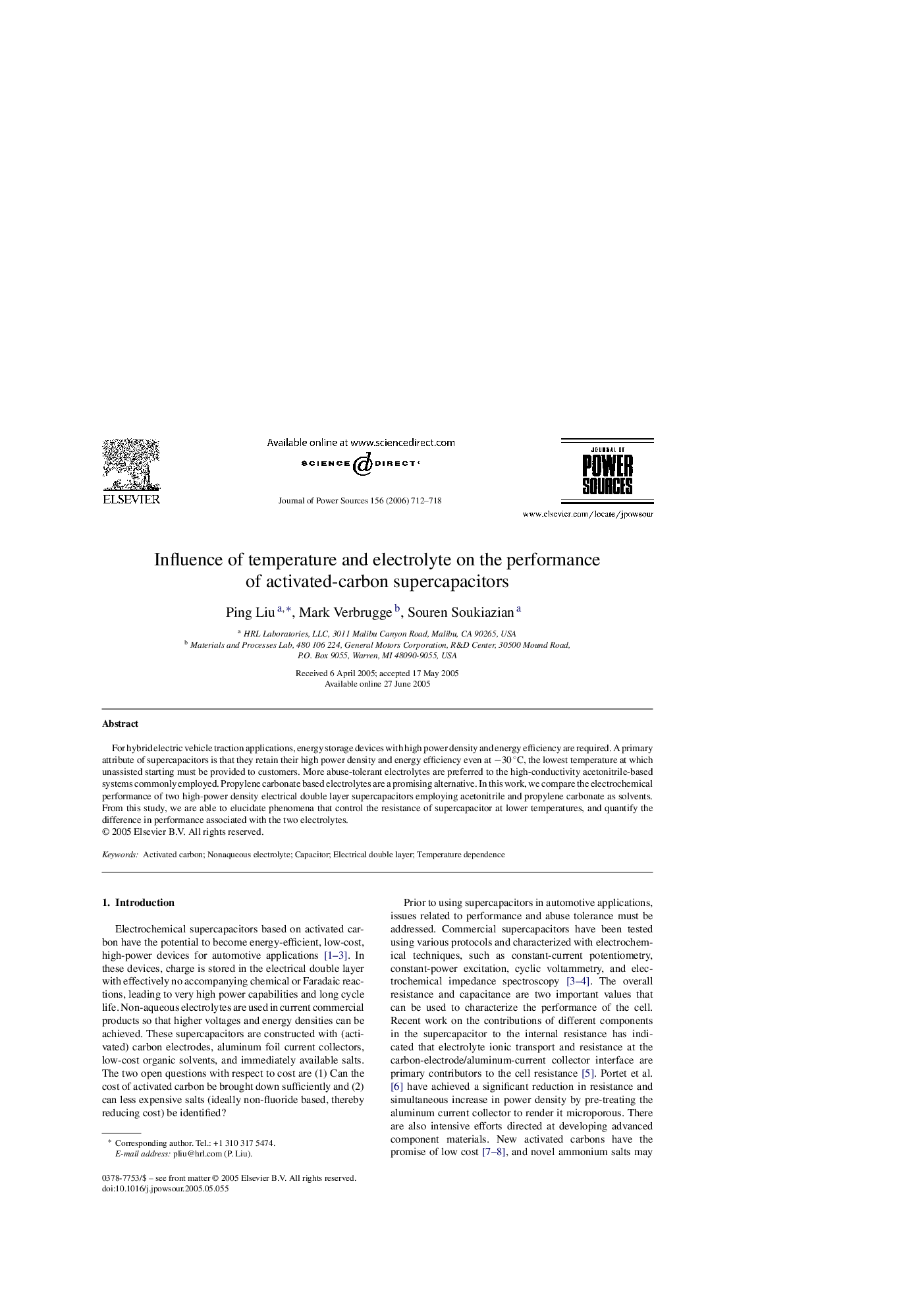| Article ID | Journal | Published Year | Pages | File Type |
|---|---|---|---|---|
| 1295085 | Journal of Power Sources | 2006 | 7 Pages |
For hybrid electric vehicle traction applications, energy storage devices with high power density and energy efficiency are required. A primary attribute of supercapacitors is that they retain their high power density and energy efficiency even at −30 °C, the lowest temperature at which unassisted starting must be provided to customers. More abuse-tolerant electrolytes are preferred to the high-conductivity acetonitrile-based systems commonly employed. Propylene carbonate based electrolytes are a promising alternative. In this work, we compare the electrochemical performance of two high-power density electrical double layer supercapacitors employing acetonitrile and propylene carbonate as solvents. From this study, we are able to elucidate phenomena that control the resistance of supercapacitor at lower temperatures, and quantify the difference in performance associated with the two electrolytes.
